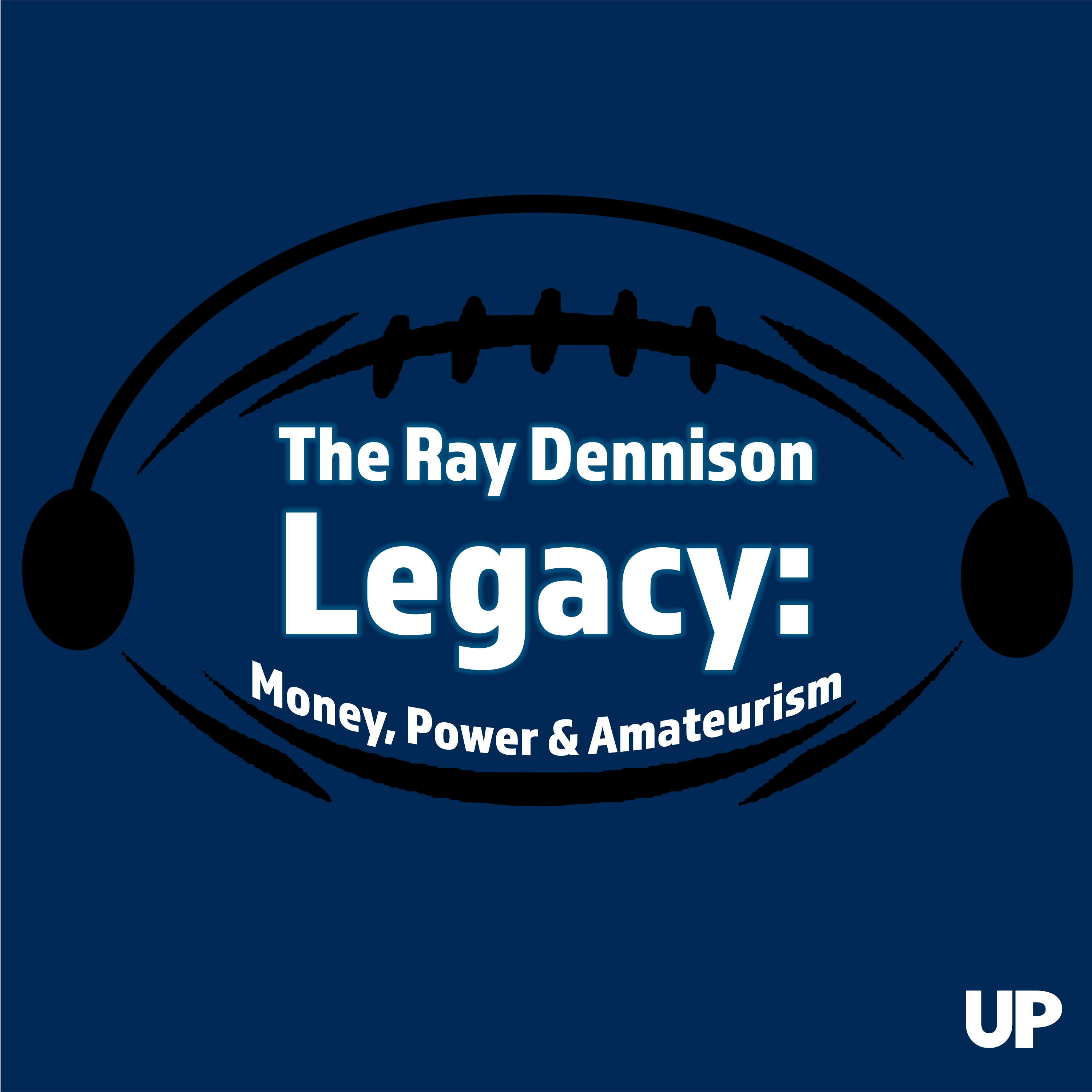In todays episode, Justine Drake, Jackson Ostroski, and Zac Gideon are going to be touching on college basketball scandals, the athletes who were affected, and situations that led to corruption and cover-up under the NCAA.
Transcription
Intro Music
ZACARY GIDEON, HOST: Hello and welcome to The Ray Dennison Legacy: Money, Power, and Amateurism presented by Urban Plains. In this series, Zac Gideon, Justine Drake, and Jackson Ostroski will be taking a dive into the NCAA, its subsequent sports, and the athletes that the NCAA quote-unquote refers to as student-athletes. Stuck in a world between traditional students and employees, the exploitation of collegiate athletes has been occurring for decades. In this series, we’ll look into the history of the NCAA, specific cases in which the NCAA has abused power for profit, and different athletes who have suffered for it.
In this episode we will be specifically looking at college basketball, the scandals that followed, and how the NCAA responded to it.
JACKSON OSTROSKI, HOST: One of the biggest scandals in basketball history was the University of Michigan men’s basketball program, where players and donors intervene, it can make for a messy combination. The Michigan Wolverines’ acclaimed Fab Five were involved in numerous scandals that have since impacted Michigan and its men’s basketball program for the past 30 years. In 1991, the starting lineup were five freshmen. The team introduced a new style of playing that captured the eyes of basketball fans. A very successful team that created a long legacy, although never able to win the big 10 championship or the NCAA championship. Their involvement in scandal led to the history being degraded and basically erased only until recently. In the late nineties, several members, Maurice Taylor, Robert Traylor, Louis Bullock, and Chris Webber of the Michigan basketball program received payments from booster Ed Martin. When on the way to party with a potential high school recruit, one of the players lost control of the vehicle.
JACKSON: It was revealed that on their way to the party. They were going to stop in Martin’s house. The scandal unfolded from there which rapidly changed and tainted the Michigan basketball program for many years. Once discovered, everything achieved by the Fab Five was erased. All records and achievements were erased as well as if they didn’t exist.
JUSTINE DRAKE, HOST: Looking at the repercussions for Michigan, the program was placed on a four-year probation, four years of postseason ineligibility, and lost one scholarship each year for the four-year probationary period. The University of Michigan prohibited the team from playing in both the NCAA tournament and the national imitation tournament. The team also forfeited 112 regular season and tournament victories from five seasons in addition to the victory in the 1992 NCAA semifinal. Michigan was only eligible to play in the big 10 tournament. Paper programs and media guides no longer mention the names of Weber, Robert Taylor, Morris Taylor, or Lewis Bullock.
JUSTINE: Four banners were taken down at Chrysler arena, the 1992 and 1993 final fours, the 1997 NIT title, and the 1998 big 10 tournament title Michigan also said it would return to the NCAA $450,000 the money it earned for appearing in the postseason and go on probation for two years.
JUSTINE: So the NCAA handled the scandal by requiring the University of Michigan to distance and disassociate itself from everyone who was found guilty, taking the payments and Weber was banned from any association with the university until 2013 but this was really all the NCAA did. The NCAA stated that they do not comment on pending examinations. The follow up from the scandal was the direct result of the NCAA’s grip on student athletes and amateur, which no longer exists as of July 1st, 2021, almost 30 years later. Due to the old rules surrounding amateurism, the NCAA was able to profit off of the backs of student athletes for decades while the athletes themselves were unable to share in those profits.
ZAC: The Baylor University basketball scandal had occurred back in the early 2000’s, which was when the men’s basketball team was closely investigated and punished for many NCAA rule and regulation violations. The scandal started to shed more light after the death of Baylor basketball player, Patrick Dennehy and this was when his teammate, Carlton Dodson had pleaded guilty to the murder and was sentenced to 35 years in prison. When Dennehy disappeared Baylor and the NCAA began conducting various investigations in relation to things such as drug use among the players to unfair payments to the players from the coaching staff. After Baylor had reached its max amount of scholarships the team could give out, the head coach Dave Bliss had secretly paid Dennehy’s tuition and also did the same for his teammate, Corey Herring. And the surprising thing about this was that Herring nor his family had any idea that this was happening but instead they were under the impression that Herring was under a scholarship.
ZAC:The investigation was taking place, Coach Bliss claimed that he did not pay for any of Dennehy’s tuition. He claimed that he had paid his own tuition by being a drug dealer, but not long after this claim, he had begun being investigated by Baylor University and the NCAA. Weeks before Bliss had resigned from his head coaching position at Baylor, Bliss had flown to New York City without his wife or anyone else’s knowledge to try and persuade Herring’s parents to lie about paying the $18,641.
ZAC: There were more allegations that had come to light from Dotson’s unusual spouse, Melissa Kethley, and her friend, Sonya Hart, who is the mother of another Baylor basketball player Robert Hart. The allegations that were reported stated that there was a large scale of marijuana and alcohol usage by the team, but was ignored by head coach Bliss and the other staff.
ZAC: Sonya Hart claimed that she had raised many concerns to the athletic director of Baylor about the alcohol and drug violation and abuse, but was never contacted about her concerns and was actually ignored. There were also allegations of recruitment tactics that were violated and that were in violation of the NCAA rules. It was when two Baylor basketball players had reported to the Dallas morning news that head coach Bliss and assistant coach Rodney Belcher were present during a pickup game in which recruit Harvey Thomas was playing in. The NCAA rules and regulations state that it is the rules for coaching for coaches and other university staff to observe recruitment play during the recruits’ official visit to the university.
ZAC: This is considered an illegal tryout. No matter if the observation is direct or indirect, it is still considered a violation of the NCAA rules.
Outro Music
ZAC: Thank you for listening to The Ray Dennison Legacy: Money, Power, and Amateurism presented by Urban Plains. Today we looked at college basketball, how scandals changed the lives of athletes, families, and The University of Michigan and Baylor forever. Thank you again and this has been The Ray Dennison Legacy: Money, Power, and Amateurism presented by Urban Plains.

